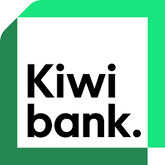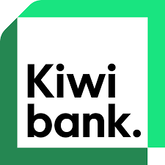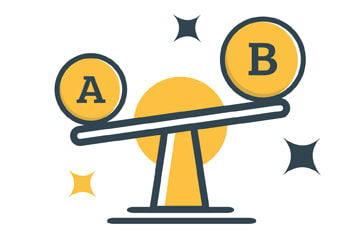Compare the Best Term Deposit Rates in New Zealand
Earn over 6% p.a. with top term deposits from trusted banks. MoneyHub publishes the top deals available right now from trusted banks, as well as tips and FAQs.
Updated 20 July 2024
Term deposit interest rates are rising. This guide highlights the best deals currently available, must-know term deposit tips and helpful FAQs to make the most of your savings.
Our guide covers:
Important:
- Top term deposit interest rates for 1-11 months
- Top term deposit interest rates for 1-5 years
- Term deposit Frequently Asked Questions
- Term deposit must-know facts and tips
Important:
- Want to see the pre-tax returns of a term deposit? Visit our Term Deposit Calculator
- Are you in a 30%, 33% or 39% tax bracket? Our Best PIE Term Deposit Rates guide ranks tax-effective term deposits.
- Keep in mind that banks possess varying credit ratings, which serve as indicators of the safety of your term deposit. For more information, refer to our comprehensive Bank Credit Ratings guide.
Our friends at InvestNow are pleased to support our popular term deposit guide
|
What is a term deposit, and how does it differ from a savings account?
There are two key differences, with term deposits and savings accounts offering unique advantages. We explain these below:
Warning - Investment Scams
- Interest rates: A term deposit offers a fixed interest rate for the life of your investment. For example, “4.50% p.a. for 3 months” or “4.99% p.a. for 3 years”. Interest rates will usually be higher the longer the term is, as banks pay more for the certainty of re-lending your money for longer. A savings account offers a floating interest rate, meaning it can change at any time. Savings accounts, in most cases, offer lower interest rates than term deposits because you can access your money at any time.
- Withdrawals: Term deposits are, as their name states, fixed for a ‘term’. If you need to access your money, a penalty will be applied. This is usually a loss of interest rather than any fee taken from your term deposit investment. By comparison, a savings account allows you to withdraw money at any time.
Warning - Investment Scams
- We are aware New Zealanders are being targeted by scammers hoping to get their hands on money otherwise destined for legitimate term deposits.
- We believe the scams start as adverts on third-party websites (e.g. not MoneyHub) and entice people to enter their contact details. Then, phone calls are made to lure the money to fake New Zealand and/or overseas-based companies promising returns above those you'll receive from term deposits.
- MoneyHub Founder Christopher Walsh explains this problem in a video that lists what you can do to avoid scams altogether.
- Remember, if it sounds too good to be true, or you have a funny feeling or anything else, do not proceed. There are too many scams out there to risk it, as you'll see in the video:
Top Term Deposits Available Right Now
Investment term: 1 to 11 months
Rabobank - 6.20% p.a. for 9 monthsInterest Rate: 6.20% p.a.
Term: 9 months Interest payment: At maturity Minimum deposit: $1,000 How to open: Apply via Rabobank's website Want to see the pre-tax returns of a term deposit? Visit our Term Deposit Calculator |
Heartland Bank - 6.15% p.a. for 6 monthsInterest Rate: 6.15% p.a.
Term: 6 months Interest payment: Every three months Minimum deposit: $1,000 How to open: Apply via Heartland's website Want to see the pre-tax returns of a term deposit? Visit our Term Deposit Calculator |
SBS - 6.05% p.a. for 9 monthsInterest Rate: 6.05% p.a.
Term: 9 months Interest payment: Quarterly or at maturity Minimum deposit: $1,000 How to open: Apply via SBS's website Want to see the pre-tax returns of a term deposit? Visit our Term Deposit Calculator |
Co-operative Bank - 5.80% p.a. for 9 monthsInterest Rate: 5.80% p.a.
Term: 9 months Interest payment: Monthly or at maturity Minimum deposit: $5,000 How to open: Apply via Co-operative Bank's website Want to see the pre-tax returns of a term deposit? Visit our Term Deposit Calculator |
Kiwibank- 6.00% p.a. for 6 monthsInterest Rate: 6.00% p.a.
Term: 6 months Interest payment: At maturity Minimum deposit: $10,000 How to open: Apply via Kiwibank's website Want to see the pre-tax returns of a term deposit? Visit our Term Deposit Calculator |
BNZ – 5.95% for 6 monthsInterest Rate: 5.95% p.a.
Term: 6 months Interest payment: At maturity and monthly Minimum deposit: $2,000 How to open: Apply via BNZ’s website Want to see the pre-tax returns of a term deposit? Visit our Term Deposit Calculator |
ANZ – 5.75% for 6 & 9 monthsInterest Rate: 5.75% p.a.
Term: 6 & 9 months Interest payment: At maturity Minimum deposit: $10,000 How to open: Apply via ANZ’s website Want to see the pre-tax returns of a term deposit? Visit our Term Deposit Calculator |
Westpac – 5.80% for 6 & 9 monthsInterest Rate: 5.80% p.a.
Term: 9 months Interest payment: Quarterly Minimum deposit: $5,000 How to open: Apply via Westpac’s website Want to see the pre-tax returns of a term deposit? Visit our Term Deposit Calculator |
TSB - 5.90% p.a. for 6 & 9 monthsInterest Rate: 5.90% p.a.
Term: 6 & 9 months Interest payment: At maturity Minimum deposit: $1,000 How to open: Apply via TSB's website Want to see the pre-tax returns of a term deposit? Visit our Term Deposit Calculator |
Investment term: 1 to 5 years
Rabobank - 6.30% p.a. for 1 yearInterest Rate: 6.30% p.a.
Term: 1 years Interest payment: For terms of 1-5 years, you can choose to have interest paid monthly, quarterly, six-monthly or annually. Minimum deposit: $1,000 How to open: Apply via Rabobank's website Want to see the pre-tax returns of a term deposit? Visit our Term Deposit Calculator |
Heartland Bank - 6.00% p.a. for 1 yearInterest Rate: 6.00% p.a.
Term: 1 year Interest payment: Quarterly Minimum deposit: $1,000 How to open: Apply via Heartland's website Want to see the pre-tax returns of a term deposit? Visit our Term Deposit Calculator |
Co-operative Bank - 5.65% p.a. for 1 yearInterest Rate: 5.65% p.a.
Term: 1 year Interest payment: Quarterly or at maturity Minimum deposit: $5,000 How to open: Apply via Co-operative Bank's website Want to see the pre-tax returns of a term deposit? Visit our Term Deposit Calculator |
Kiwibank- 5.80% p.a. for 1 yearInterest Rate: 5.80% p.a.
Term: 1 year Interest payment: Monthly or at maturity Minimum deposit: $10,000 How to open: Apply via Kiwibank's website Want to see the pre-tax returns of a term deposit? Visit our Term Deposit Calculator |
SBS - 5.95% p.a. for 12 & 18 monthsInterest Rate: 5.95% p.a.
Term: 12 & 18 months Interest payment: Quarterly Minimum deposit: $1,000 How to open: Apply via SBS's website Want to see the pre-tax returns of a term deposit? Visit our Term Deposit Calculator |
Westpac – 5.80% for 12 monthsInterest Rate: 5.80% p.a.
Term: 12 months Interest payment: Quarterly Minimum deposit: $5,000 How to open: Apply via Westpac’s website Want to see the pre-tax returns of a term deposit? Visit our Term Deposit Calculator |
BNZ – 5.80% for 1 yearInterest Rate: 5.80% p.a.
Term: 1 year Interest payment: At maturity and monthly Minimum deposit: $2,000 How to open: Apply via BNZ’s website Want to see the pre-tax returns of a term deposit? Visit our Term Deposit Calculator |
ANZ – 5.70% for 12 monthsInterest Rate: 5.70% p.a.
Term: 12 months Interest payment: Quarterly Minimum deposit: $10,000 How to open: Apply via ANZ’s website Want to see the pre-tax returns of a term deposit? Visit our Term Deposit Calculator |
TSB - 6.10% p.a. for 1 yearInterest Rate: 6.10% p.a.
Term: 1 year Interest payment: At maturity Minimum deposit: $1,000 How to open: Apply via TSB's website Want to see the pre-tax returns of a term deposit? Visit our Term Deposit Calculator |
Rabobank - 5.50% p.a. for 5 yearsInterest Rate: 5.50% p.a.
Term: 5 years Interest payment: For terms of 1-5 years, you can choose to have interest paid monthly, quarterly, six-monthly or annually. Minimum deposit: $1,000 How to open: Apply via Rabobank's website Want to see the pre-tax returns of a term deposit? Visit our Term Deposit Calculator |
Disclosure:
- We have excluded credit unions, finance companies, mortgage trusts and other non-bank deposit takers. To see the current rates and credit ratings of those institutions, visit interest.co.nz.
- Rates are subject to change without notice - please confirm the latest interest rate, early withdrawal fees and interest payments before accepting any investment opportunity.
- We have not assessed PIE term investments, but our research confirms that Heartland Bank consistently offers the best long-term PIE rates.
Our friends at InvestNow are pleased to support our popular term deposit guide
|
How do I pick the best term deposit?
The best term deposit will likely have the highest interest rate for the term you want to invest (i.e. three months or two years) from the most stable bank. You’ll also need to meet the minimum deposit threshold, which can be $1,000, $2,000 or as high as $100,000. Other considerations include:
How can I check the balance?
Term deposits which can be viewed online or via an app, help manage your money. Most banks offer this.
Our view: With interest rates increasing since the OCR increases, the best way to pick a term deposit is by length and interest rate. If you’re prepared to complete the forms and set up an account with a new bank, the difference in interest rates can be significant. 0.50% or even 0.25% can make a $50 or $25 difference on a $10,000 term deposit. Generally, term deposits are offered for terms of 3, 6, 9 and 12 months, as well as 2, 3 and 5 years.
- How often is interest calculated? The best term deposits pay interest monthly, meaning it compounds, while others pay interest ‘at maturity’. With interest rates increasing with the OCR, this is something to be aware of.
- Is there a break fee or penalty? If you think you’ll need the money before the term ends, you’ll pay a break fee. It’s likely to be an interest penalty, rather than an actual charge. However, check the details to be sure. If you may need the money, a savings account which allows instant access to your money could be a better option.
How can I check the balance?
Term deposits which can be viewed online or via an app, help manage your money. Most banks offer this.
Our view: With interest rates increasing since the OCR increases, the best way to pick a term deposit is by length and interest rate. If you’re prepared to complete the forms and set up an account with a new bank, the difference in interest rates can be significant. 0.50% or even 0.25% can make a $50 or $25 difference on a $10,000 term deposit. Generally, term deposits are offered for terms of 3, 6, 9 and 12 months, as well as 2, 3 and 5 years.
Term Deposit Frequently Asked Questions
While term deposits are fairly simple, there are a few important facts to be aware of. We answer the most common questions below:
Who offers term deposits?
Most banks offer term deposits – our list of top term deposits, earlier in this guide, has the latest offers and all the details you need to know. Finance companies, specialist mortgage lenders and commercial banks also offer term deposits, but we have excluded these due to their riskier nature and/or lack of investor-friendly features.
Can I open a joint term deposit?
Generally not. However, high-interest savings accounts offer joint-control.
Is a term deposit safe?
While no investment is 100% safe, term deposits fall into the category of ‘low risk’. They also offer a guaranteed return – the interest rate is fixed for the term of the deposit. This differs from savings accounts where the interest rate can change at any time.
What are the tax implications of interest earned on term deposits?
Per the NZ government, when you make a term deposit, you need to tell your provider (i.e. the bank):
- Your IRD number
- The tax rate you should pay, based on your income.
How do I open a term deposit?
The best way to open a term deposit is online via the bank's website, or by visiting the bank’s branch. You’ll need to provide a few documents (like an ID and proof of address) to validate your ownership and source of funds. Once approved, your money will be locked in for the agreed term.
What happens at the end of the investment's term?
Once term deposits reach the end of the term, it ‘matures’, and you’ll be given two options. Firstly, you can roll it over for the same term length at the market interest rate (which may be the same, higher or lower than the rate you first signed up for). Alternatively, you can transfer the money to a regular bank or savings account. If you want to withdraw the money before the term ends, you’ll pay a penalty for doing so.
Term deposits - Pros and Cons
Term deposits offer security, but they may not be for everyone. We discuss the pros and cons below:
Pros:
Know This: Are you in a 30%, 33% or 39% tax bracket? Our guide to Best PIE Term Deposit Rates ranks tax-effective term deposits.
Pros:
- Low risk – you’ll earn the interest rate you agree to, and there’s next to no chance of losing your money if you invest with a New Zealand bank.
- No fees – you don’t pay anything to invest (unless you break the term to access your money)
- Locks in an interest rate – unlike most other investments, your return is fixed. No matter what the sharemarket or Reserve Bank does during your term, you will receive the interest you agreed on.
- Encourages good savings habits – a term deposit is locked in, so without the hassle of breaking it and incurring penalties, having the money invested (and rolling it over when the term ends) keeps your finances in order.
- You can’t access your money until the term ends – this means you’ll need to budget accordingly and have enough money to cover your expenses
- You can’t add to the term deposit while it’s invested – savings accounts allow and encourage you to keep saving, but term deposits are fixed until maturity. If you want to save more, you’ll need a savings account.
- No flexibility – term deposits are fixed for a period of time, and if interest rates increase, you won’t benefit. However, you’ll be protected if they fall.
Know This: Are you in a 30%, 33% or 39% tax bracket? Our guide to Best PIE Term Deposit Rates ranks tax-effective term deposits.
Our friends at InvestNow are pleased to support our popular term deposit guide
|



























